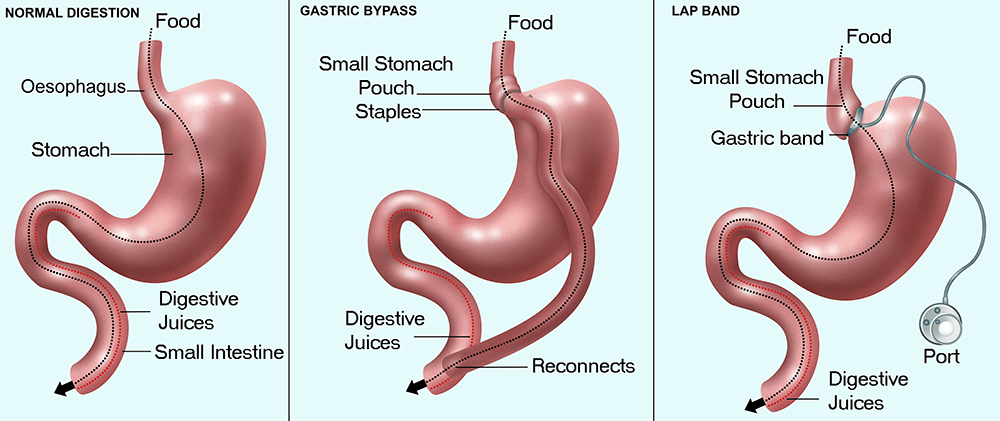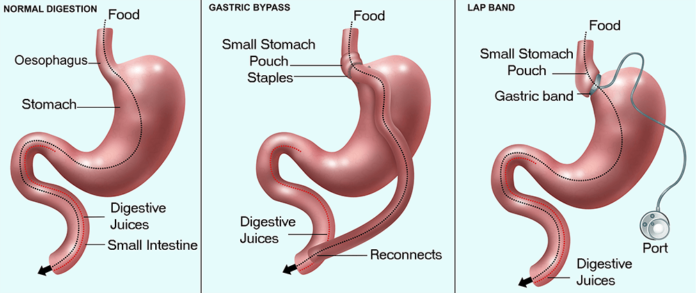Bariatric Surgery for Lasting Weight Loss

Bariatric Surgery for Lasting Weight Loss
Understanding Bariatric Surgery:
Types of Bariatric Surgery:
- Gastric Bypass (Roux-en-Y): Gastric bypass is one of the most commonly performed bariatric procedures. It involves creating a small pouch at the top of the stomach and connecting it directly to the small intestine, bypassing the rest of the stomach and part of the small intestine. This restrictive and malabsorptive procedure leads to reduced food intake and decreased calorie absorption.
- Sleeve Gastrectomy: During sleeve gastrectomy, a large portion of the stomach is surgically removed, leaving behind a smaller, banana-shaped sleeve. This restrictive procedure significantly reduces the stomach’s capacity, leading to decreased appetite and earlier feelings of fullness.
- Gastric Banding (Lap Band): Gastric banding involves placing an adjustable silicone band around the upper part of the stomach, creating a small pouch that limits food intake. Unlike gastric bypass and sleeve gastrectomy, gastric banding is reversible and adjustable.
- Biliopancreatic Diversion with Duodenal Switch (BPD/DS): This complex procedure combines sleeve gastrectomy with rerouting of the small intestine to limit both food intake and calorie absorption. BPD/DS is both restrictive and malabsorptive, resulting in significant weight loss and metabolic changes.
Significant Weight Loss: Bariatric surgery typically results in substantial weight loss, with patients often losing more than 50% of their excess body weight within the first year.
Improvement in Health Conditions: Beyond weight loss, bariatric surgery can lead to significant improvements or remission of obesity-related health conditions such as type 2 diabetes, hypertension, sleep apnea, and joint pain.
Enhanced Quality of Life: Many patients experience improvements in mobility, energy levels, self-esteem, and overall quality of life following bariatric surgery.
Long-Term Results: Unlike many fad diets or temporary weight loss solutions, bariatric surgery offers the potential for long-term weight maintenance and improved health outcomes.
Considerations and Precautions:
While bariatric surgery can be life-changing, it is not without risks and considerations. Patients considering bariatric surgery should undergo a thorough evaluation process, including medical assessments, nutritional counseling, and psychological evaluations. It’s essential to understand the potential risks and complications associated with each type of surgery, as well as the necessary lifestyle changes and lifelong commitments required for success.
The Journey Ahead:
For more info visit this link: https://insightfulbilal.com/5-unique-ways-for-weight-loss/




[…] Bariatric Surgery for Lasting Weight Loss […]
Thanks for sharing. I read many of your blog posts, cool, your blog is very good.
Your article helped me a lot, is there any more related content? Thanks!